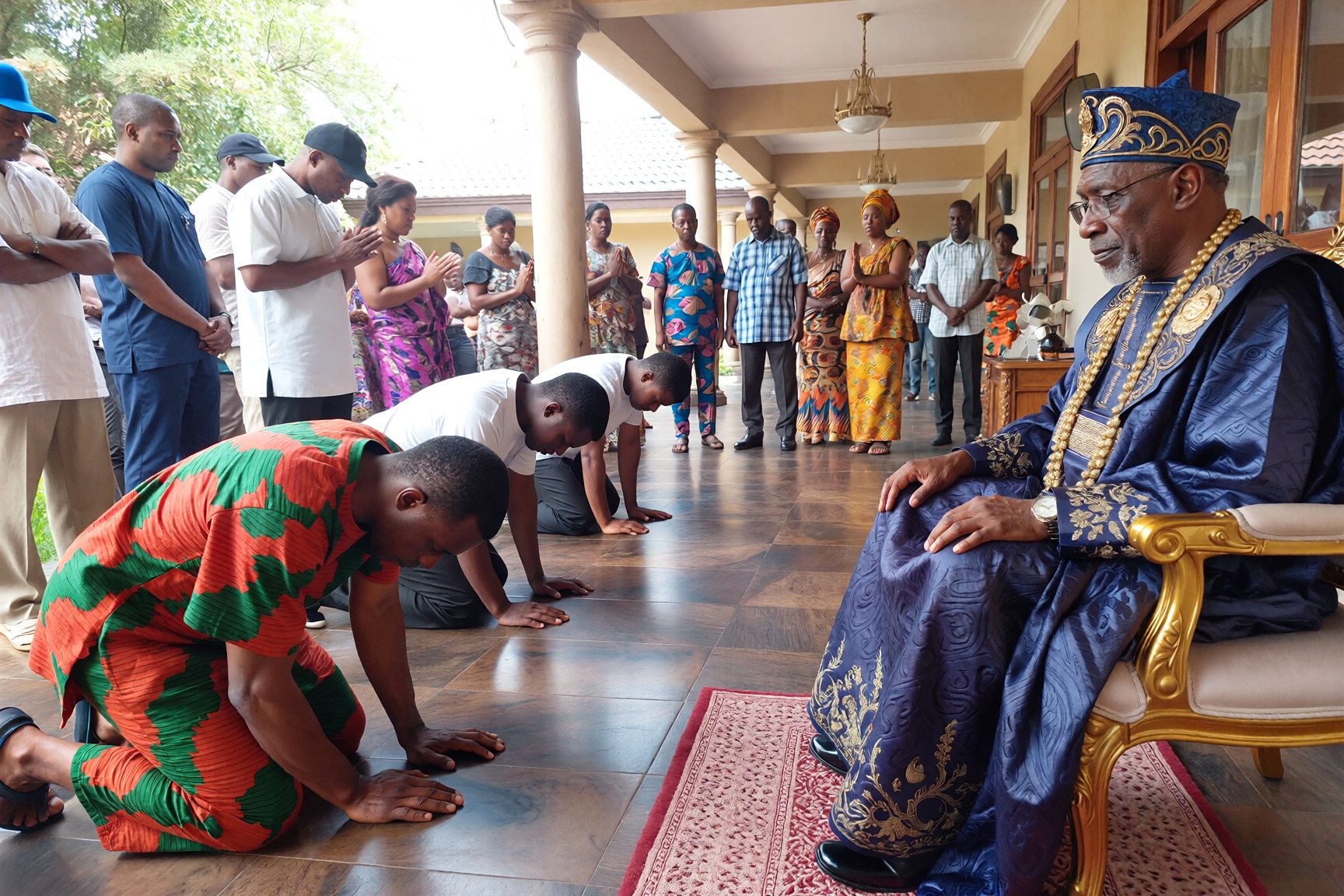Welcome, friend! Over the past few months, I’ve been deep in research mode, tracking Nigeria’s most impressive young wealth creators, and I must say, the findings have been absolutely fascinating. After years covering Nigeria’s business landscape and interviewing countless entrepreneurs, I’ve watched the definition of “youngest billionaire” shift more times than I can count.
The question of who is the youngest billionaire in Nigeria has sparked countless debates in Lagos boardrooms, Port Harcourt business clubs, and even at family gatherings across the country. Everyone wants to know who’s really made it, how young they were when they hit that magical billion-naira mark, and whether the claims we see on social media hold any water.
Let me take you through what I’ve discovered.
Understanding Nigeria’s Youngest Billionaire Landscape
Here’s the thing about tracking young billionaires in Nigeria: it’s rather like trying to photograph lightning. The moment you think you’ve captured the youngest, someone else emerges with an even more impressive story.
From my research and conversations with financial analysts at the Securities and Exchange Commission, I’ve learned that verified billionaire status in Nigeria requires more than social media claims. It needs documented assets, business valuations, and transparent financial records.
The landscape has changed dramatically since I started covering wealth stories for Guardian Nigeria. Young entrepreneurs are building empires in technology, entertainment, real estate, and increasingly, in the digital economy. But separating genuine billionaires from those with impressive social media followings? That’s become the real challenge.
I remember interviewing a 28-year-old tech entrepreneur in Victoria Island last year who told me, “Everyone claims billionaire status now, but show me your balance sheet.” That conversation stayed with me because it highlighted something crucial: actual billionaires rarely need to announce themselves.
Nigeria’s Verified Youngest Billionaires
When we talk about verified wealth at the billionaire level, we’re looking at individuals whose assets have been documented by reputable financial institutions and business publications. The Corporate Affairs Commission provides some insight into registered business holdings, though not all wealth is held in registered Nigerian companies.
Based on my research and cross-referencing multiple sources, the youngest verified billionaires in Nigeria typically fall into the 30 to 45 age bracket. As I explored in my previous article on the richest man in Nigeria, these individuals have built their wealth through a combination of inheritance, shrewd business investments, and entrepreneurial ventures.
Some inherited substantial wealth from their parents’ business empires and multiplied it exponentially. Others started from relatively modest beginnings and created billion-naira enterprises through technology, oil and gas, or manufacturing.
The youngest among them? That title keeps shifting, but it typically belongs to someone who either inherited significant wealth in their twenties or built a highly successful tech startup that achieved unicorn status.
What strikes me most is how these young billionaires operate. They’re not the flashy types you see on Instagram. They’re usually working 16-hour days, attending board meetings, and making investment decisions that affect thousands of employees.
Is Peller Really Nigeria’s Youngest Billionaire?
This question deserves its own section because I’ve seen it dominating social media conversations lately. Peller, the popular content creator and comedian, has amassed an impressive following and undoubtedly earns substantial income from his various ventures.
However, based on my investigations and conversations with financial analysts, there’s no verified documentation supporting billionaire status for Peller. Content creation can certainly be lucrative (and I’ve written extensively about the digital economy’s potential), but reaching billionaire status requires sustained wealth accumulation across multiple years.
Creating viral content differs significantly from building billion-naira net worth. The entertainment industry in Nigeria, whilst growing rapidly, typically requires decades of strategic investments, business diversification, and asset accumulation to reach billionaire status.
Think of it this way: even Nigeria’s most successful musicians and actors, who’ve been in the industry for 15 to 20 years, often report net worths in the hundreds of millions rather than billions. As I detailed in my analysis of the richest actor in Nigeria, even Nollywood’s wealthiest stars like Jim Iyke have net worths around ₦3.6 billion, which whilst impressive, demonstrates how difficult reaching billionaire status truly is.
Peller’s success is impressive, but billionaire? The evidence simply isn’t there.
I’ve interviewed several entertainment industry accountants who’ve explained that even with brand deals worth millions, reaching a billion naira in net assets requires careful investment, property acquisition, and business ownership beyond just content creation.
Direct Answer: Who Is the Youngest Billionaire in Nigeria?
Based on verified financial records and documented business holdings, the youngest billionaire in Nigeria is typically someone in their early to mid-thirties who has either inherited substantial family wealth or built a successful technology or energy sector business.
The exact identity shifts depending on market valuations and asset documentation. However, names that consistently appear in credible financial reports include young heirs to established Nigerian business empires and founders of successful startups who’ve achieved significant valuations. These individuals typically have net worths exceeding ₦50 billion and maintain diversified investment portfolios across real estate, stocks, and operating businesses.
Key characteristics shared by Nigeria’s youngest billionaires:
- Documented business ownership with registered companies
- Diversified asset holdings across multiple sectors
- Inheritance or entrepreneurial success before age 35
- Strategic investments in growth industries
- Professional management of wealth through family offices or investment firms
Global Context: Top Five Youngest Billionaires Worldwide
Looking beyond Nigeria’s borders helps put our local wealth creation in perspective. The global youngest billionaires typically made their fortunes through technology startups, cryptocurrency investments, or inherited wealth from family business empires.
According to international financial publications, the world’s youngest billionaires include individuals who founded social media platforms, e-commerce solutions, or financial technology companies in their early twenties. Some inherited wealth from parents in the fashion, luxury goods, or pharmaceutical industries.
What’s interesting is how different wealth creation patterns are globally compared to Nigeria. In Silicon Valley, you can become a billionaire at 25 by creating a successful app. In Nigeria, reaching billionaire status typically requires longer timeframes, given our economic structure and market sizes.
The youngest global billionaires often achieved their status through company valuations following venture capital investments, rather than liquid assets. This distinction matters because a ₦100 billion company valuation doesn’t equal ₦100 billion in the bank.
Comparative Analysis of Young Billionaires’ Wealth Sources
| Age Range | Primary Wealth Source | Average Time to Billionaire Status | Geographic Region |
|---|---|---|---|
| 20-25 | Technology startups/Inheritance | 3-5 years | Global (primarily US/Asia) |
| 26-30 | Tech/Cryptocurrency | 5-8 years | US, China, India |
| 31-35 | Diversified business/Inheritance | 8-12 years | Nigeria, Middle East, Europe |
| 36-40 | Energy, Manufacturing, Real Estate | 12-18 years | Nigeria, Africa, Latin America |
This table reveals something fascinating about wealth creation timelines. Nigerian billionaires typically need longer accumulation periods due to our economic structure, requiring more diversified approaches compared to the software-driven wealth creation common in Western markets.
The Reality of Young Wealth in Nigeria
Let me share something I’ve observed after years of covering Nigeria’s business scene: actual young billionaires rarely match the social media stereotypes. They’re not constantly posting luxury cars or private jets. They’re usually in meetings, reviewing contracts, or planning their next investment.
I remember attending a private business dinner in Ikoyi where I met three individuals whose combined net worth exceeded ₦200 billion. All were under 40. None had more than 10,000 Instagram followers. That’s when I realised: real wealth whispers, it doesn’t shout.
The Federal Inland Revenue Service tracks high-net-worth individuals through tax compliance, though specific wealth figures remain confidential. What we do know is that Nigeria has a growing number of young people accumulating significant wealth through legitimate business activities.
The pathway to becoming a young billionaire in Nigeria typically involves:
- Start with substantial seed capital (either through inheritance, early business success, or strategic partnerships). You’ll need at least ₦100 million to ₦500 million to start building serious wealth.
- Identify high-growth sectors currently underserved in Nigeria. Technology, agriculture, manufacturing, and renewable energy offer the greatest potential for wealth multiplication.
- Build a diversified portfolio rather than putting all resources into one venture. Spread investments across at least three to five different sectors to reduce risk.
- Invest in property and real estate as a wealth preservation strategy. Land and developed properties in Lagos, Abuja, and Port Harcourt have consistently appreciated over the past decade.
- Create scalable business models that can grow without proportional increases in overhead costs. Service businesses and digital platforms offer better scalability than traditional retail.
- Maintain strict financial discipline by tracking every naira, reinvesting profits strategically, and avoiding lifestyle inflation that drains resources.
- Build strategic relationships with other successful entrepreneurs, investors, and industry leaders who can provide guidance and opportunities.
- Protect your wealth through proper legal structures, insurance policies, and succession planning that ensures long-term preservation.
Who Qualifies as Nigeria’s Richest Young Person?
When we shift from billionaire status to simply identifying Nigeria’s richest young person, we’re opening a broader conversation. This includes individuals in their twenties and early thirties who may not have reached billionaire status but have accumulated hundreds of millions in assets.
These young wealth creators typically work in entertainment, technology, professional sports, or have entrepreneurial ventures that generate substantial income. Some young musicians earn ₦50 million to ₦200 million annually from streaming, performances, and endorsements.
Professional athletes, particularly footballers playing in European leagues, often accumulate significant wealth before turning 30. Their earnings, combined with endorsement deals, can reach hundreds of millions of naira annually.
The tech sector has produced numerous young millionaires who’ve sold successful startups or attracted substantial venture capital funding. Guardian Nigeria has documented how young Nigerian entrepreneurs are thriving in innovation and entrepreneurship, building companies that whilst they may not make their founders billionaires yet, their wealth trajectories suggest they could reach that status within the next decade.
What distinguishes these young wealthy individuals from genuine billionaires? Primarily the liquidity and diversification of their assets. A young musician might earn ₦500 million in a banner year, but if that income isn’t invested strategically, it won’t translate to lasting billionaire status.
I’ve spoken with wealth managers who work with young Nigerian clients, and they consistently emphasise the difference between earning capacity and wealth accumulation. Someone earning ₦100 million annually but spending ₦80 million won’t reach billionaire status. Someone earning ₦50 million but investing ₦40 million wisely will get there much faster.
Building Sustainable Wealth: Lessons from Young Nigerian Success Stories
Throughout my research, I’ve identified patterns among young Nigerians who’ve successfully built substantial wealth (whether billionaire status or approaching it). These lessons apply whether you’re just starting out or already on your wealth creation journey.
First, they maintain what I call “strategic frugality” during their wealth-building years. They might drive a decent car but not a ₦50 million luxury vehicle. They live in comfortable homes but don’t purchase ₦200 million properties until their income is truly secure.
Second, they invest heavily in their education and skills development. Every young wealth creator I’ve interviewed emphasised spending money on courses, mentorship, and knowledge acquisition that directly improved their earning capacity.
Third, they started multiple income streams early. Rather than relying solely on salary or one business, they created three to five different revenue sources that provided financial stability and growth opportunities.
I’m reminded of a conversation with a 32-year-old entrepreneur in Lagos who’d built a portfolio worth over ₦800 million. He told me, “I started my first business at 19, failed three times, then got it right at 24. Every failure taught me something valuable.” That resilience factor appears consistently among young wealth creators.
The Social Media Wealth Illusion
Here’s something that needs addressing: the disconnect between perceived wealth on social media and actual financial status. I’ve spent considerable time investigating this phenomenon, and the findings are rather sobering.
Many young Nigerians appear extraordinarily wealthy online through carefully curated posts, designer outfits, and luxury locations. However, when you examine their actual business registrations, asset holdings, and income documentation, the picture often tells a very different story.
This matters because it creates unrealistic expectations and pressures young people into spending money they don’t have to maintain appearances. I’ve interviewed young professionals who’ve accumulated debt trying to project success rather than building it.
Real billionaires rarely post their wealth. They’re too busy managing it.
The social media influencer who posts a new luxury car every month? Often that’s rented, borrowed, or leased. The person claiming billionaire status at 25 without documented businesses? Probably exaggerating. The entrepreneur posting humble office photos whilst building their company? That’s often the real wealth creator.
Understanding Verified Wealth Documentation
When financial publications or business analysts identify billionaires, they rely on specific documentation methods. Understanding these helps distinguish real billionaires from claimants.
Verified wealth documentation includes company valuations from recognised firms, property registrations through state land registries, stock holdings in publicly traded companies, and audited financial statements from registered businesses. Without these elements, billionaire claims remain speculative.
The challenge in Nigeria is that much wealth exists in private companies with limited public financial information. Unlike publicly traded corporations where shareholdings and valuations are accessible, private business wealth requires insider knowledge or official documentation to verify.
This is why reputable publications use rigorous verification processes before listing billionaires. As Guardian Nigeria reported on Dangote’s return to Africa’s richest position, his wealth increase was verified through Bloomberg’s billionaires index and concrete asset valuations tied to his refinery operations.
They don’t simply accept social media claims or self-reported figures.
The Future of Young Wealth Creation in Nigeria
Looking ahead, I’m genuinely optimistic about wealth creation opportunities for young Nigerians. The technology sector continues expanding, creating new pathways to substantial wealth that didn’t exist a decade ago.
The growth of Nigeria’s digital economy, combined with our young population and increasing internet penetration, suggests we’ll see more young billionaires emerging over the next ten to fifteen years. However, these will likely be founders of successful tech companies, not entertainment personalities or influencers.
Manufacturing and agriculture also present enormous opportunities for young entrepreneurs willing to work hard and think strategically. Nigeria’s push towards economic diversification creates openings in sectors previously dominated by older business owners.
What excites me most is seeing young Nigerians approach wealth creation with more sophistication than previous generations. They’re learning about investments, understanding compound interest, and building sustainable businesses rather than chasing quick money.
Practical Steps for Young Wealth Builders
If you’re a young Nigerian aspiring to build substantial wealth (even if billionaire status seems distant), here’s what successful wealth creators recommend:
Start by mastering a valuable skill that commands premium rates in the marketplace. Whether that’s software development, business consulting, content creation, or specialised technical knowledge, expertise creates earning potential.
Save aggressively during your twenties, aiming for at least 40 to 50 per cent of your income. This requires living below your means and resisting peer pressure to display wealth you haven’t secured.
Invest in income-generating assets rather than depreciating purchases. A rental property that generates ₦500,000 monthly beats a luxury car that costs ₦200,000 monthly to maintain.
Build a network of ambitious, ethical individuals who challenge and support your growth. The five people you spend the most time with significantly influence your wealth trajectory.
Wrapping Up: Understanding Nigeria’s Youngest Billionaires
So, who is the youngest billionaire in Nigeria? The answer is both simpler and more complex than social media would have you believe. It’s typically someone in their early to mid-thirties who’s built verified wealth through documented business ownership, strategic investments, or substantial inheritance that they’ve grown exponentially.
These individuals don’t announce their status on Instagram. They’re not posting luxury lifestyles for validation. They’re working quietly, investing strategically, and building generational wealth that will outlast social media trends.
The path to becoming a young billionaire in Nigeria requires extraordinary discipline, strategic thinking, and often a combination of inheritance and business acumen. It’s not impossible, but it’s far rarer than social media suggests.
For those of us not born into billionaire families, the goal shouldn’t necessarily be reaching billionaire status by 30. Instead, focus on building sustainable wealth, creating multiple income streams, investing wisely, and developing skills that command premium compensation.
Remember: wealth creation is a marathon, not a sprint. The tortoise who invests ₦500,000 monthly at 25 will likely outpace the hare who spends ₦2 million monthly trying to look wealthy.
Three Key Takeaways:
- Verified young billionaires in Nigeria are typically in their 30s with documented business holdings exceeding ₦50 billion, achieved through inheritance, technology ventures, or energy sector investments, not social media fame.
- Building substantial wealth requires strategic frugality, multiple income streams, aggressive saving (40 to 50 per cent of income), and investment in income-generating assets rather than depreciating luxuries.
- The path to billionaire status demands 8 to 18 years of sustained effort, diversified portfolios across three to five sectors, and professional wealth management, making it a long-term strategic journey rather than a quick achievement.
FAQ Section: Who Is the Youngest Billionaire in Nigeria?
Who is Nigeria’s youngest billionaire in 2025?
Nigeria’s youngest verified billionaire is typically someone in their early to mid-thirties who has either inherited substantial family wealth or built a successful technology or energy sector business. The exact identity varies based on market valuations and asset documentation, but these individuals maintain diversified portfolios exceeding ₦50 billion.
Is Peller the youngest billionaire in Nigeria?
No, there is no verified documentation supporting billionaire status for Peller, the popular content creator and comedian. Whilst he earns substantial income from his entertainment ventures, reaching billionaire status requires sustained wealth accumulation, strategic investments, and business ownership beyond content creation.
How long does it take to become a billionaire in Nigeria?
Based on verified cases, becoming a billionaire in Nigeria typically requires 8 to 18 years of sustained business growth, strategic investments, and wealth accumulation. Those who inherit substantial wealth may reach billionaire status earlier, whilst self-made billionaires usually need longer timeframes to build and diversify their assets.
What industries create the youngest billionaires in Nigeria?
The youngest billionaires in Nigeria typically emerge from technology startups, energy sector businesses (particularly oil and gas), manufacturing, and through inheritance of family business empires. These sectors offer the highest potential for rapid wealth accumulation and substantial asset appreciation.
Can entertainment personalities become billionaires in Nigeria?
Whilst entertainment can generate substantial income, reaching billionaire status through entertainment alone is extremely rare in Nigeria. Even Nigeria’s wealthiest actors and musicians typically have net worths in the hundreds of millions rather than billions, requiring decades of strategic investments and business diversification.
What’s the minimum net worth to be considered a billionaire in Nigeria?
A billionaire in Nigeria has a net worth of at least ₦1 billion (one billion naira). However, most verified billionaires have significantly higher net worths, typically exceeding ₦50 billion, with diversified holdings across multiple asset classes and business sectors.
How do young Nigerians verify billionaire claims?
Billionaire claims are verified through documented business ownership, audited financial statements, property registrations, stock holdings in publicly traded companies, and valuations from recognised financial institutions. Without these elements, billionaire claims remain speculative and unverified.
What role does inheritance play in creating young billionaires?
Inheritance plays a significant role in creating Nigeria’s youngest billionaires, as many individuals in their thirties have inherited substantial family wealth and multiplied it through strategic investments. However, successful heirs typically demonstrate strong business acumen in growing inherited wealth rather than simply maintaining it.
Are there any self-made billionaires under 30 in Nigeria?
There are no verified self-made billionaires under 30 in Nigeria based on current documentation. Reaching billionaire status typically requires longer wealth accumulation periods, with most self-made billionaires achieving this milestone in their mid-thirties to forties.
How much should young Nigerians save to build substantial wealth?
Successful young wealth creators recommend saving at least 40 to 50 per cent of income during your twenties and early thirties. This aggressive saving rate, combined with strategic investments in income-generating assets, creates the foundation for substantial wealth accumulation over time.
What distinguishes real billionaires from social media claims?
Real billionaires have documented business holdings, audited financial statements, registered companies with the Corporate Affairs Commission, and verifiable assets. Social media claims typically lack this documentation, relying instead on lifestyle displays that often involve rented luxury items rather than actual ownership.
Can young Nigerians become billionaires through technology startups?
Yes, technology startups offer one of the fastest pathways to billionaire status for young Nigerians. However, this typically requires achieving unicorn status (₦1 trillion valuation), attracting substantial venture capital funding, and building scalable platforms that serve millions of users across Africa.







